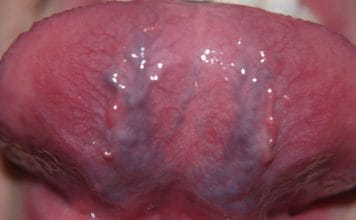Disclosure: This article is sponsored content from LISTERINE® as part of our sponsored partner program.
Hygienists are always working to improve patients’ oral health, and this often includes very detailed oral hygiene instructions tailored for each patient ‒ brushing technique, interdental cleaning tools, and sometimes mouthrinses. Choosing the right tools for each patient can be difficult, but knowing the science behind products can make it a little easier.
A recent randomized clinical trial published in June 2022 in the Journal of Dental Hygiene special issue evaluated the efficacy of twice-daily alcohol containing, essential oil mouthrinse (LISTERINE® Antiseptic) and brushing, and flossing and brushing, under once-daily supervision for the prevention and reduction of plaque and gingivitis.”1
The methodology of this clinical trial included four groups:
- Brushing plus LISTERINE® Antiseptic
- Brushing plus flossing under the supervision of a hygienist
- Brushing plus flossing by a hygienist
- Brushing plus 5% hydroalcoholic rinse (control group)
The primary endpoints evaluated were interproximal mean Modified Gingival Index (MGI) and interproximal mean six-site Turesky Modification of the Quigley-Hein Plaque index (TPI) at week 12. A secondary endpoint was interproximal mean bleeding index (BI) at week 12 compared to the control group.
The results of the study were quite interesting. LISTERINE® Antiseptic significantly reduced plaque and gingivitis with a 22.8% reduction in interproximal TPI, 46.4% reduction in interproximal MGI, and 76.4% reduction in interproximal BI. LISTERINE® Antiseptic had superior results compared to flossing by a dental hygienist and supervised flossing in the areas of reduced interproximal MGI and reduced interproximal TPI. All three methods, flossing by a dental hygienist, supervised flossing, and rinsing with LISTERINE® Antiseptic, in combination with brushing, showed a superior reduction in interproximal BI versus control but were not statistically different from each other.
Because flossing is very technique-specific, plaque control with flossing may not be achievable for some patients, and seeking out other methods to help manage plaque and tailoring each patient’s individual home care is necessary. A systematic review published in 2008 in the International Journal of Dental Hygiene found that “routine instruction of flossing in gingivitis patients as a helpful adjunct therapy is not supported by scientific evidence. The dental professional should determine, on an individual patient basis, whether high-quality flossing is an achievable goal.”2
This is where LISTERINE® Antiseptic may be a useful tool in the management and home care regimen of patients. With evidence showing rinsing with LISTERINE® Antiseptic is 4.6 times more effective than flossing by a dental hygienist for sustained supragingival plaque reduction, recommending it for daily home care may significantly improve patients’ gingival health.1
The idea that floss is not the gold standard for reducing gingivitis and plaque is difficult to digest for some hygienists. For some patients with good dexterity and technique, you may determine that flossing may be the best choice for them. However, when adults aged 18-60 with evidence of gingivitis and no evidence of periodontitis were surveyed, only 16% reported flossing daily, leaving room for other methods that may improve oral health.3 Therefore, guiding your patients to an effective antimicrobial mouthwash as demonstrated by LISTERINE® will likely enhance their gingival health and home care routine.
Managing plaque is one of the most important aspects of a dental hygienist’s job. Hygienists cannot do this on their own when only seeing the patient every six months. Therefore, patient home care and compliance are of utmost importance in managing oral health. In no way is anyone suggesting hygienists throw floss out and never recommend it. However, reviewing other options to improve compliance should be considered when recommending a home care routine. LISTERINE® Antiseptic is an option that is easy to implement and may improve patient compliance and patients’ gingival health.
To read more about the new research, click here.
References
- Bosma, M.L., McGuire, J.A., Sunkara, A., Sullivan, P., Yoder, A., Milleman, J., Milleman, K. Efficacy of Flossing and Mouthrinsing Regiments on Plaque and Gingivitis: A Randomized Clinical Trial. J Dent Hyg. 2022 Ju 8-20.
- Berchier, C.E., Slot, D.E., Haps, S., Van der Weijden, G.A. The Efficacy of Dental Floss in addition to a Toothbrush on Plaque and Parameters of Gingival Inflammation: A Systematic Review. Int J Dent Hyg. 2008; 6(4): 265-279. doi:10.1111/j.1601-5037.2008.00336.x. https://pubmed.ncbi.nlm.nih.gov/19138178/
- Rotella, K., Bosma, M.L., McGuire, J., et al. Habits, Practices and Beliefs Regarding Floss and Mouthrinse among Habitual and Non-habitual Users. J Dent Hyg. 2022 June; 96(3): 46-58.
















